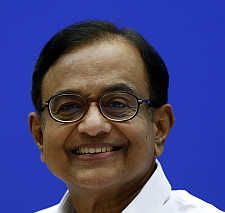 Here is the speech of Finance Minister P Chidambaram on India's economy that he delivered to Lok Sabha.
Here is the speech of Finance Minister P Chidambaram on India's economy that he delivered to Lok Sabha.
Mr Chairman, Sir, I am grateful to the honorable members. I think there were 18 of them who have participated in this very important debate on the economic situation of the country.
Since I returned to the Ministry of Finance in August 2012, I have made four statements besides, of course, some off the cuff remarks now and then. In every one of that statement I have emphasised that thanks to a number of developments around the world, the Indian economy was facing challenges.
Not once did I say that all was well because I know that no finance minister anywhere in the world can say that all was well. The world economy is indeed facing challenges. Let us accept that fact. In fact, the world has not recovered since the crisis of 2008.
The crisis actually deepened in 2011-12 and there are no signs yet of it lifting in most countries of the world. All we have to do is look at the last page of The Economist, which comes out every week, and it will tell you, much to your surprise, that India is among the fastest growing countries of the world despite the difficulties.
But I do not take great comfort in the fact that we are growing at five per cent. It saddens me. Both the prime minister and I have repeatedly said that India cannot afford to grow at anything less than eight per cent.
I have listened to this debate very carefully since it started about 12.30. At the end of this debate, what does the country expect us to do? The country expects us to say what we will do in the next few weeks, in the next few months and whether there is broad agreement on what we will do.
The hard fact is that there is no agreement. I say this with great respect and responsibility, let us not fool ourselves. There is simply no agreement on what we will do. You would only have to contrast the speech of the lead Speaker, Gurudas Dasgupta, and some others belonging to the Left Parties and the speeches of some members from the Congress and the principal opposition party.
If the Parliament is not able to point to the direction in which the country’s economy will go, if it is not able to agree on, say, 10 steps which the government should take today, six months from today, a year from today, what kind of a message will it send to the rest of the world? I am not trying to score debating points. In fact, I think the situation is grave enough for no one to attempt to score debating points.
We talk about investment. Look at the different voices on a matter like land acquisition. Without acquiring land, how will you put up industry? We talk about power projects. I can give you a list of power projects where there are one or more local agitations that say: “Don’t put the power plant in my backyard”. We talk about hydroelectric power. I can list a number of projects which are stalled. One of them has been stalled for nearly two years and the turbine cannot be taken to where the dam has been built.
So, I think, the fact is the polity of this country is divided on economic policy. Well, that is understandable because there are different political parties, there are different ideological persuasions. My plea to every one is, despite our differences, can we agree upon some measures which have to be taken in order to lift the country’s economy from what it is today, about
5 per cent growth, to what we had between 2004 and 2008, technically between 2003 and 2008.
When I refer to 2003 and 2008, it is with pardonable pride that I say that the team that is being accused of mismanagement was the very team that 27.08.2013 managed between 2004 and 2008, too. The only thing that has happened is, we may have become older by a few years. But our basic instincts are the same. My basic instinct is of that of a reformer. I know I will be contradicted by many honorable members and I respect their right to contradict me.
But I believe what we need now is not less reforms but more. What we need now is not more restrictions but less. What we need now is not a closed economy but a more open economy.
I believe that even though the polity is divided, it is possible to weave together a tapestry of common actions, common programmes on which there can be some differences, but basically we can all agree that this is the direction in which we should go.
For the full speech, click here











 © 2025
© 2025